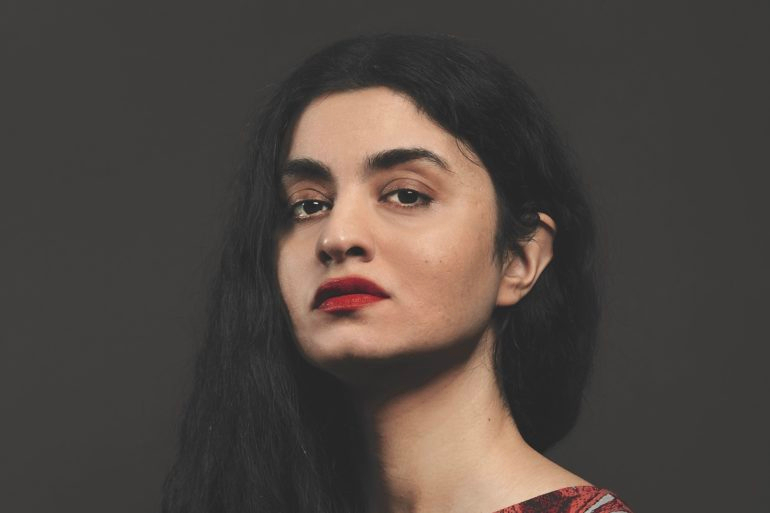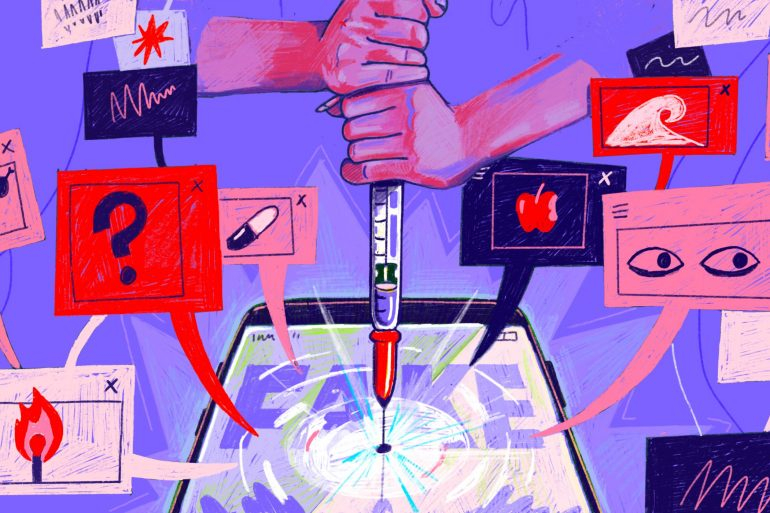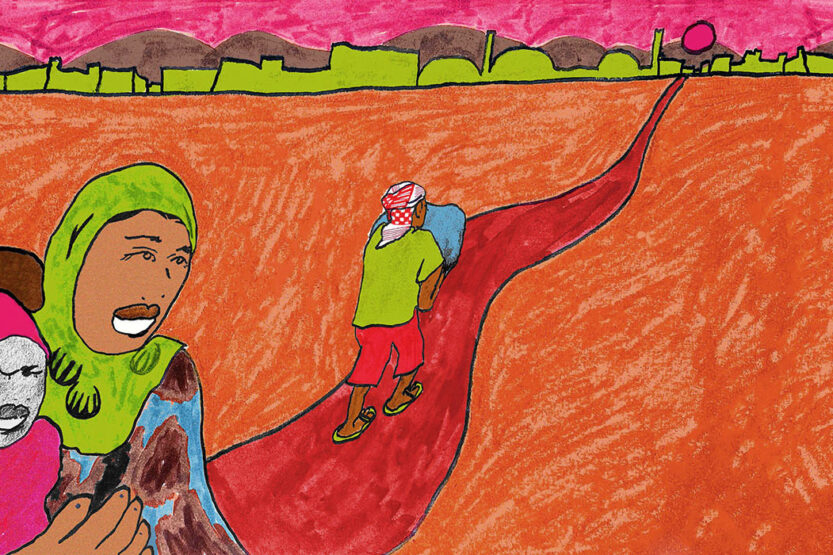Sarah Grant is a working-class writer from Glasgow, determined to change the way that audiences perceive plus-size women through feminist and sex-positive film and television projects.
In her first book, Fat Girl Best Friend, she wants to shine a spotlight on a lineup of plus-sized women across media from the past 20(ish) years, and show her audience not only how tropey the representation of these women are, but how these tropes have affected her own development along with a whole generation of other plus-size women.
The book came around because of the pandemic, Sarah tells me when I meet her on Zoom. “I started putting myself in front of the camera out of necessity,” she explains, “I was very aware, when I started, what roles there were for me as an actor. I’m the sassy sidekick! I’m the best friend character!”
Once that connection was made – that plus-size women tend to overwhelmingly (but not always) play the role of, well, the Fat Girl Best Friend – it was difficult to “un-see” it. And that’s why Sarah was stirred to start drawing examples together.
“I was really worried that people thought I just had a chip on my shoulder,” she admits, “it’s the fact that these women are so few and far between that it’s impossible to see these tropes […] but once you actually see them out of their contexts, standing next to each other, there are hella tropes.” And so, Sarah formulated Fat Girl Best Friend.
Fat Girl Best Friend is a great read – sharp and serious about the damage that these tropes do to plus-size women, but with enough wit and charm to make it a fun read. The short sections inside short chapters make it easy to absorb in a couple of sittings, and I’m sure many plus-size people reading it will find themselves fist-pumping the air, as I did, at the expert takedowns of some of film and TV’s most fatphobic characters.
A highlight for me is the section on the infamous “Fat Monica” running gag on Friends, where Sarah argues: “Chandler should find [Fat Monica] sexy no matter what size she is, […] I really did appreciate the alternative episode which spelled out that now matter how their lives panned out, Chandler and Monica were meant to be together, […] but if I were Monica I don’t know whether I could ever trust someone who makes it so clear that they prefer me to be thin.”
It’s with this kind of balanced, nuanced approach that Sarah discusses the good, the bad and the ugly of plus-sized female characters, including Stranger Things’ Barb, Hairspray’s Tracey and Edna Turnblad, and Pitch Perfect’s Fat Amy.
In the last chapter, Sarah leaves us with a solution to the tropey representation of these women: she declares real and tender depictions of female friendship to be the “silver bullet” to the Fat Girl Best Friend trope.
“Female friendship has been a cultural teaching, an institution, a lifeline that has never let me down,” she writes, which strikes a pang in me as a transmasc person. Having experienced the beauty of female friendships, and then to have those relationships shift as I transitioned, is for me the worst thing about the so-called “female to male” experience.
Friendships between women are magical, and while I still treasure my female friends, it’s not really the same. Sarah is absolutely right – those bonds are sacred, and over the course of Fat Girl Best Friend it really drives home how rare true, nuanced depictions of female friendship are in the media.
Despite the fact that most of the characters she explores do have a female best friend, by virtue of the trope, the examples of true solidarity between plus-size women and thin women are few and far-between.
The Fat Girl Best Friend, Sarah argues, is almost always roiling in jealousy of her friend or pushed aside for a man, and this is having an impact on the way that plus-sized women feel in female friendship groups in real life. “I’ve questioned my worth in friendship groups, but my girl friends lift me up,” she recalls with a smile. “I wouldn’t have been able to get in front of the camera or write this book without a particular friend of mine, who really pushed me and told me you can do this.”
This is part of Sarah’s effectiveness as a storyteller – she draws on her own experience in a way that feels specific but relatable to a huge range of people. She insists that she doesn’t speak for all plus-sized women – “how could I?” – but I would wager most plus-sized women would resonate with what she has to say, and a lot of thin people would learn a lot about their plus-sized friends as well.
Ultimately, Fat Girl Best Friend is not an academic text, but one which hopes to educate people about how the media they consume plays into how people are treated across society.
“The idea of Fat Girl Best Friend was to give people the power to watch something new, and if a trope comes up, for them to recognise that this specific trope comes from a bad place,” Sarah says. I think that the way that this trope has been studied and picked apart in this book not only sets readers up to spot harmful stereotypes about plus-sized women, but about all kinds of people different from them. It’s a masterclass in how to look closely and critically at film and television without needing to resort to academic jargon, and I hope it’s widely read – not just for the plus-sized women in our lives, but to build the kind of media literacy that shapes generations.
If thin people had been able to recognise the harm of the Fat Girl Best Friend trope in the early noughties – if plus-sized people had been able to voice our discomfort with “Fat Monica” without being told to lighten up – a generation could have been saved a lot of struggle with their bodies. Sarah Grant, I think, has the potential to transform that for the next generation, and I can’t wait to see what she does next.
What can you do?
See more from Sarah Grant:
- Buy Fat Girl Best Friend
- Watch her short Chub Rub for BBC The Social
- Watch her short First Time Naked for BBC The Social
Learn about anti-fatness:
- Read Belly of the Best: The Politics of Anti-Fatness as Anti-Blackness by Da’Shaun Harrison
- Watch Da’Shaun Harrison’s NAAFA webinar on Anti-Fatness as Anti-Blackness
- Read “Medical Fatphobia: Weight-based Discrimination in Healthcare Settings” by Marisa Crane for Within Health
- Read “‘Fatphobia’ a Form of Oppression, Says Philosopher Kate Manne” by Linda B. Glaser for the Cornell Chronicle
- Read: Cashing in on body image: how body dysmorphia is a capitalist issue
- Read: Being fatphobic is not just offensive, it’s racist too
















